Does anybody fancy a free, one-day course on the viable system model (VSM)?
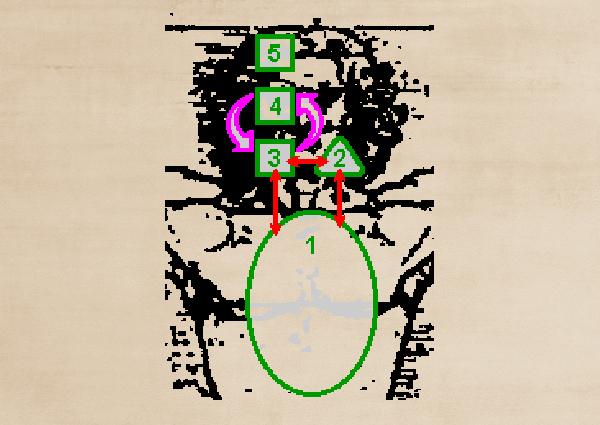
I recently interviewed Trevor Hilder, a specialist in the viable system model. I’ve been interested in it for a while, since I heard from credible sources that it could be a valuable tool for building the new economy.
I’ve since found that it could be a useful tool for organising almost everything, including businesses, local economies, governments, networks, voluntary organisations and institutions of all kinds.
Trevor said that if I wanted to learn more, and especially his (Moral Modalities Framework) slant on the VSM, he’d run one of his one-day VSM workshops for a small group of people (including me) in London. He’ll do the same anywhere in the country if his expenses are covered (for up to to 7 people).
Very basically, the viable system model organises entities (from businesses to economies) based on 5 levels:
- operations
- regulation and conflict resolution
- management
- predictive – looking out at the rest of the world, to try to understand what’s going on, and what threats or opportunities are on the way
- values / policy / guardianship
None of these levels are dominant or subservient to any other, and all are seen as necessary for a sytem to be ‘viable’.
The idea came from the late Stafford Beer, who was in the process of converting the Chilean economy to a VSM model in 1973, when Pinochet put a stop to it.
There’s more of an explanation in the interview, and the most accessible online guide available was written by Jon Walker.
A colleague and I visited Jon and his partner, Angela Espinosa, who has many successful VSM projects in South America under her belt. We’ve started a conversation about using the VSM to help embed mutual credit into communities, and how to build the Open Credit Network in the UK.
The VSM has its critics, as you can see from this Loomio thread. But we think it’s worth a shot.
Here’s some more information from Trevor:
How Organisations Really Work
11am – 4pm, Date to be Decided
I’d like to offer a four hour workshop to teach the fundamental concepts of how organisations work, based on the work of Professor Stafford Beer in the field of management cybernetics, which he founded in the 1960s.
Beer applied these concepts to fields as diverse as managing steel production, publishing, banking and economic policy. I learned them from Beer in the 1990s and since then have applied them with great success to understanding organisations and building better (software) systems to free people to get their work done with the minimum of bureaucracy.
I recently taught these ideas to the COO of an organisation with an annual turnover of £30 million which reduced his working week from 100 hours to about fifteen! The workshop will be in depth and highly interactive, and I will be helping participants work on their own interests as we go along.
It will consist of two sessions of about two hours each, with a break for lunch in between:
11:00 – 13:00 Introduction to the Viable System Model (VSM).
13:00 – 14:00 Lunch.
14:00 – 16:00 Overcoming Social Barriers to Organisational Change – the Moral Modalities Framework (MMF).
Due to the interactive nature of the session, it will be restricted to a maximum of seven participants.
NB: we have 2 people signed up already, so we’re looking for another 5 max. We’ll have to pay Trevor’s expenses (around £50 for London), so we’ll share that by the number of participants.
If you’re interested, send me your details (dave at lowimpact dot org), and why you want to do it. It will be more-or-less first-come first served, but I guess ‘I want to develop the co-operative sector in my town’ is going to beat ‘I want to become a billionaire’, for example.
This workshop is in London because that’s where I live. Trevor will do the same in your town if you pay his expenses.
PS Jon, Angela, Trev – if I’ve gone wildly wrong with my description of the VSM, could you correct me in the comments?
The views expressed in our blog are those of the author and not necessarily lowimpact.org's
6 Comments
-
1annbeirneanimalwhisperert September 22nd, 2019
I would love to be able go on this course but the course may be free but my travel expenses in money and cost to the planet would be huge.
An online free online course using skype or internet would be a far more planet friendly way to do it.
Ann
-
2Dave Darby September 22nd, 2019
I think that’s a good idea. Maybe we can film the London course. I’ll ask Trevor if the course has to be face-to-face or if it translates to video and text.
It would have to be very basic to be free. An online course would cost money and time to produce, so there would have to be a charge (although we’d use any income to promote / help build the new economy).
-
3Trevor Hilder September 23rd, 2019
Hi Ann,
Where are you?
I have taught this course in Second Life and it would probably work using something like Zoom, but face-to-face is much better.
I am not keen on recording it because it comes out different every time. The reason for keeping numbers small is to maintain the personal dynamic.
Anything else is like “sending a kiss by messenger” ?
Regards,
Trevor
-
4Trevor Hilder September 23rd, 2019
Hi Dave. I reckon your brief account of VSM is fine!
Regards,
Trevor
-
5Callum Nash September 24th, 2019
I’ve spent as much time studying Cybernetics as I have political ideology and design theory – it’s one of my passions. It’s very exciting to see someone teaching the VSM, it’s a powerful tool! I might draw anyone whose interested’s attention to this talk by Stafford Beer which I think is essential viewing. https://www.youtube.com/watch?v=2ybjOw6UJ8A Beer was a marxist, and Cockshott and Cottrell continued his work in using cybernetic principles to develop a more just economy http://ricardo.ecn.wfu.edu/~cottrell/socialism_book/ this work is generally called ‘cybernetic communism’. I might be down in London around November, and in February / March next year. If it’s on a Wednesday or Saturday I might be able to attend. But as I’m already pretty knowledgeable about VSM it would probably be best to have a student whose head isnt already full!
-
6Trevor Hilder September 25th, 2019
Hi Callum. I knew Stafford Beer pretty well, having tracked him down in 1994 and kept in touch until his death in 2002. I would not describe him as a Marxist. He was actually inclined to mysticism, taught Tantric Yoga and was familiar with the works of Gurdjieff and many other “esoteric” thinkers. In other words, he was never a materialist, so could not have been a dialectical one.
My one day course goes beyond VSM into the realms of moral philosophy, since it covers my Moral Modalities Framework as well as VSM: http://webofwealth.org/ gives a brief intro.
Regards,
Trevor




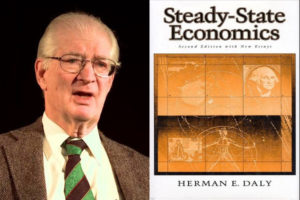 How the corporate banking system transfers wealth from the poor to the wealthy, without anyone noticing
How the corporate banking system transfers wealth from the poor to the wealthy, without anyone noticing
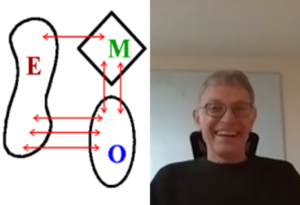 How the viable system model (VSM) can help build a new economy: Trevor Hilder of Web of Wealth
How the viable system model (VSM) can help build a new economy: Trevor Hilder of Web of Wealth
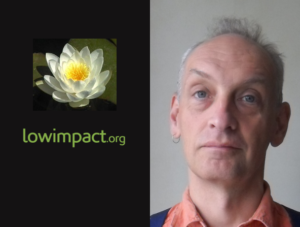 How do we build a new, non-extractive economy? Dil Green of Lowimpact.org
How do we build a new, non-extractive economy? Dil Green of Lowimpact.org
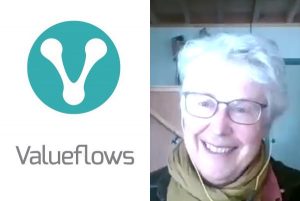 Understanding the REA / Value Flows model: Lynn Foster of Mikorizal (Part 1)
Understanding the REA / Value Flows model: Lynn Foster of Mikorizal (Part 1)
 Mutual credit
Mutual credit
 Commons economy
Commons economy
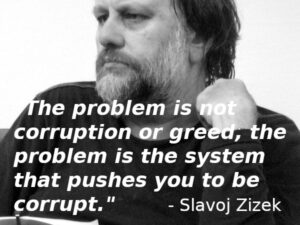 System change
System change


